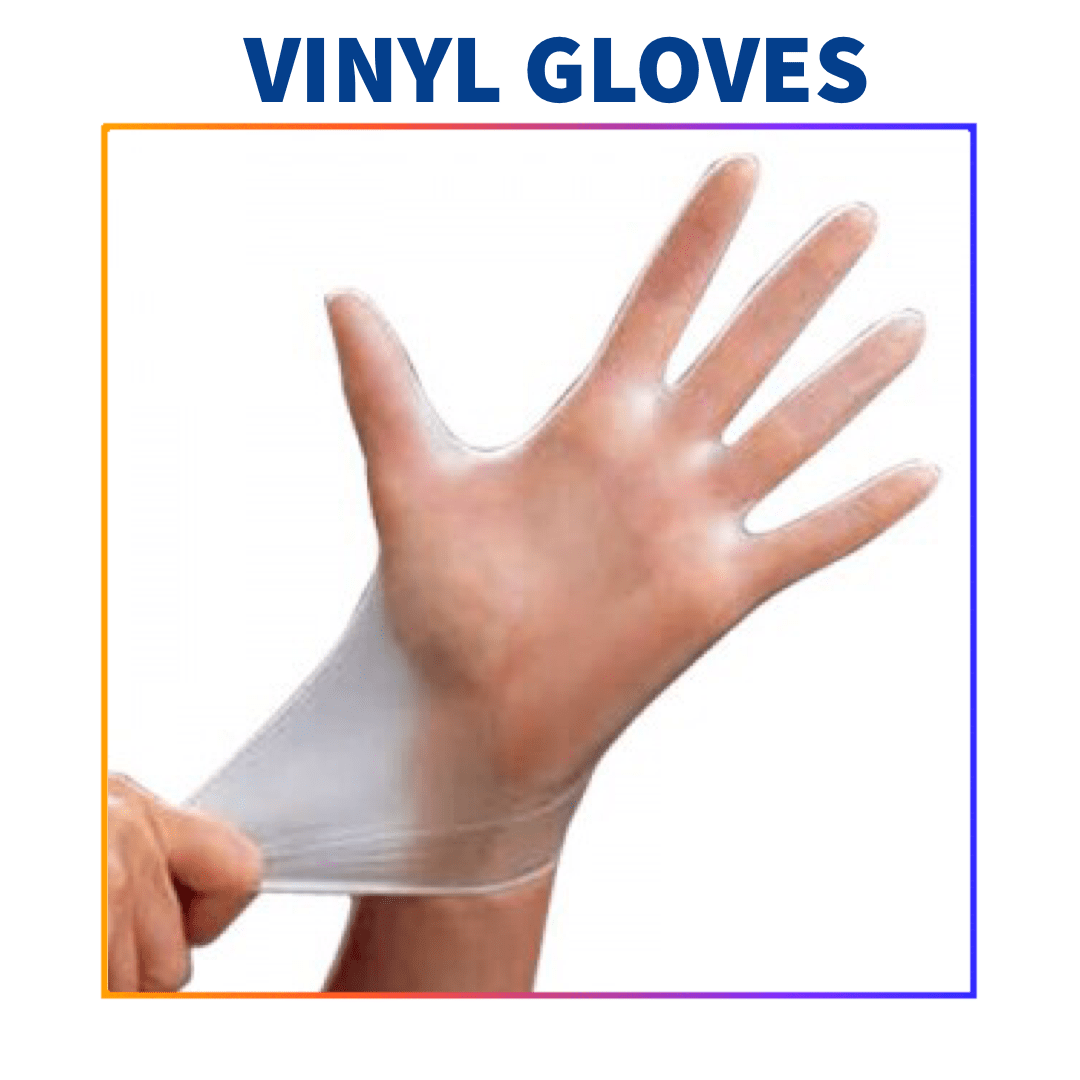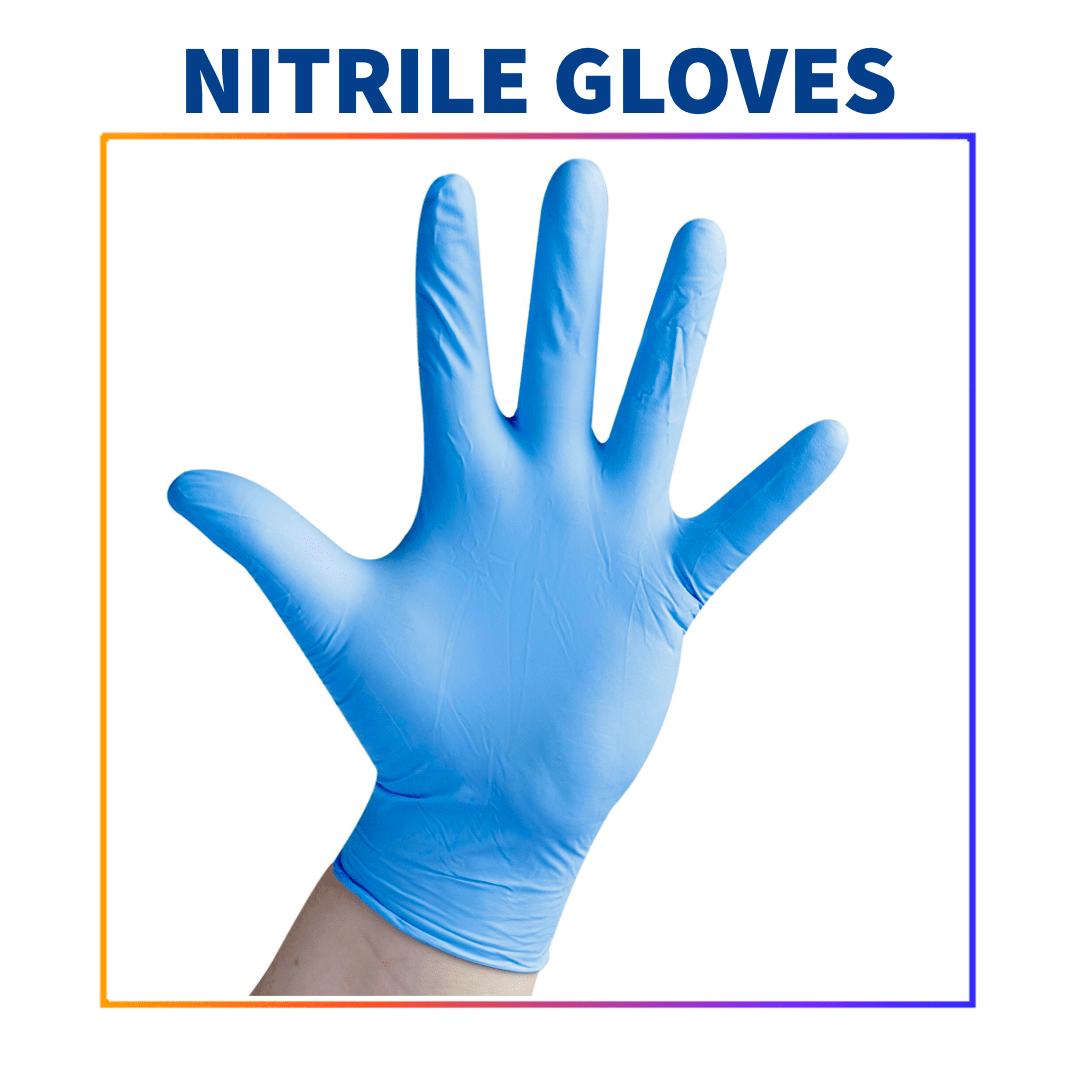Are Nitrile Gloves Better Than Vinyl Gloves?
In recent times, the use of gloves has become increasingly important in various industries, particularly in healthcare, food service, and laboratory settings. With the COVID-19 pandemic, the demand for gloves has surged dramatically, resulting in a wide range of options in terms of material, size, and thickness. Two common materials used for gloves are nitrile and vinyl. In this blog post, we'll discuss the differences between nitrile and vinyl gloves to help you choose the best option for your needs.What are Nitrile Gloves?
Nitrile gloves are made of synthetic rubber and are widely used in the healthcare industry. They are known for their excellent resistance to chemicals, oils, and solvents, making them a great option for handling hazardous materials. Nitrile gloves are also durable, puncture-resistant, and provide excellent tactile sensitivity. They are available in various thicknesses, including heavy-duty options that are perfect for high-risk situations.What are Vinyl Gloves?
Vinyl gloves are made of a synthetic plastic material called polyvinyl chloride (PVC). They are less expensive than nitrile gloves and are commonly used in the food service industry. Vinyl gloves are best suited for light-duty tasks that do not involve exposure to hazardous materials. They are also less puncture-resistant than nitrile gloves, so they are not recommended for use in high-risk situations.Material and Composition: Nitrile gloves are made from synthetic rubber while vinyl gloves are made from PVC.
Strength and Durability: Nitrile gloves are more durable and puncture-resistant than vinyl gloves. They can withstand exposure to chemicals, oils, and solvents. On the other hand, vinyl gloves are less durable and more prone to tearing or puncturing.
Comfort and Fit: Nitrile gloves are soft and comfortable to wear. They provide excellent tactile sensitivity, making it easy to perform tasks that require precision. Vinyl gloves are less soft and may cause skin irritation or allergic reactions in some people. They also have a looser fit than nitrile gloves, which may make it difficult to perform tasks that require precision.
Price: Vinyl gloves are less expensive than nitrile gloves, making them a popular option for those on a tight budget. However, the price of nitrile gloves has come down in recent times, making them more affordable than they used to be.
Applications: Nitrile gloves are commonly used in the healthcare industry, particularly in hospitals and clinics. They are also used in laboratory settings, the food processing industry, and other high-risk environments. Vinyl gloves are used in light-duty tasks, such as food handling, janitorial work, and hairdressing.
Nitrile gloves are generally stronger and more durable than vinyl gloves. Nitrile gloves are made from synthetic rubber, which provides more strength and puncture resistance than vinyl gloves. They are also resistant to a wider range of chemicals and have a higher level of barrier protection. On the other hand, vinyl gloves are made from polyvinyl chloride (PVC) and are less durable than nitrile gloves. Vinyl gloves are thinner and have less resistance to punctures and tears than nitrile gloves. They are suitable for short-term use and tasks that require minimal protection. Vinyl gloves are also a more cost-effective option compared to nitrile gloves. Overall, the choice between nitrile gloves and vinyl gloves depends on the intended use and the level of protection required. If high levels of strength and durability are required, nitrile gloves are the better option. If cost-effectiveness is a priority and minimal protection is needed, vinyl gloves can be a suitable choice.
Conclusion: In summary, both nitrile and vinyl gloves have their advantages and disadvantages. Nitrile gloves are more durable, puncture-resistant, and provide excellent tactile sensitivity. They are best suited for use in high-risk environments where exposure to hazardous materials is a concern. Vinyl gloves are less durable and more prone to tearing or puncturing. They are best suited for light-duty tasks that do not involve exposure to hazardous materials. When choosing between nitrile and vinyl gloves, it's important to consider your specific needs and the type of work you will be doing. Ultimately, the choice between these two types of gloves will depend on your budget, the level of protection required, and the type of task you need to perform.


















